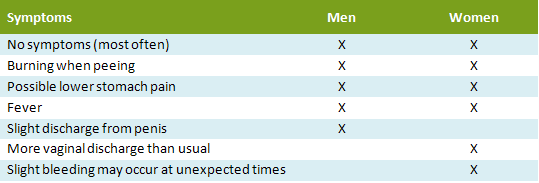CHLAMYDIA
CHLAMYDIA…
- Is one of the most common sexually transmitted diseases (STDs).
- Is caused by bacteria.
- Is passed from person to person during sexual activity, including vaginal, anal and oral sex.
- Can pass from mother to baby during birth resulting in eye infections or in more severe cases, pneumonia.
- Should be treated immediately If a person is infected.
- Is most common in women under 25 years of age because the cervix of young women is much more sensitive to infection.
- Can lead to serious problems for both men and women. The tiny tubes of the reproductive system can become scarred and blocked as the body fights the infection. This can lead to infertility (inability to have children) and other problems.
HOW IS CHLAMYDIA SPREAD?
Chlamydia can only spread when one person’s infected body fluids (like sperm, ejaculate, or vaginal fluids) are passed to another person. Certain parts of the body get infected easier than others because bacteria grow easier in warm, moist places. Vaginal, oral and anal sex are the main ways the bacteria is passed from one person to another.
WHAT ARE THE SYMPTOMS OF CHLAMYDIA?

HOW DO YOU GET TESTED FOR CHLAMYDIA?
Testing for chlamydia is easy. The most common test is a urine sample that is sent to a lab. Not all healthcare providers do the test automatically, so be sure to ask for one if you’ve had unprotected sex. A woman’s annual PAP exam is a good time to get tested. In some cases, a provider may take some fluid from the vagina or penis and send it to the lab. One new test allows a woman to collect her own vaginal sample with a swab, but it may not be available everywhere. If you’re interested in getting tested this way, ask your healthcare provider if it’s available.
CAN CHLAMYDIA BE TREATED?
Treatment is usually quick and easy. Your healthcare provider will give you a prescription for an antibiotic. Take all your medicine, even after you start to feel better. Pregnant women may need different medicine, so tell your provider if you think you might be pregnant. It’s important to tell your provider because you might need a different kind of medicine. Your sex partner(s) must also be treated or you will get chlamydia again.
WHAT HAPPENS IF YOU DON’T GET TREATMENT?
Untreated chlamydia is a leading cause of pelvic inflammatory disease (PID) in women. After time, the germs can travel further into the body, causing damage to the reproductive system.
In men, chlamydia can cause an inflammation of the testicles called epididymitis. It can cause fever, pain and swelling. Like PID in women, the damage can be severe enough to cause infertility.
WHAT IF YOU’RE DIAGNOSED WITH CHLAMYDIA?
Follow your provider’s instructions. Tell your partner so that he or she can be tested and treated as they probably have it, too. Even if you don’t plan to have sex with this partner again, it’s important they are told so that they won’t spread it to anybody else. In addition to you and your partner receiving treatment, you should not have any sex while taking your medicine and for 7-10 days after you and your partner finish the treatment.
If you need help telling your partner about the infection, visit the communication page for helpful ways to handle the discussion.
IS CHLAMYDIA PREVENTABLE?
The most effective way to avoid a chlamydia infection is not to have activity that passes sexual fluids. If you decide to have sex, choose to be in a mutually monogamous relationship (where you and your partner only have sex with each other) and use latex or polyurethane condoms correctly and every time you have sex.
To be sure you’re correctly using condoms, check out this video. For women who are pregnant, the best way to prevent spreading the infection to the baby is to get treated as quickly as possible, treat sex partners, and have a retest to ensure the bacteria is completely gone before giving birth.




